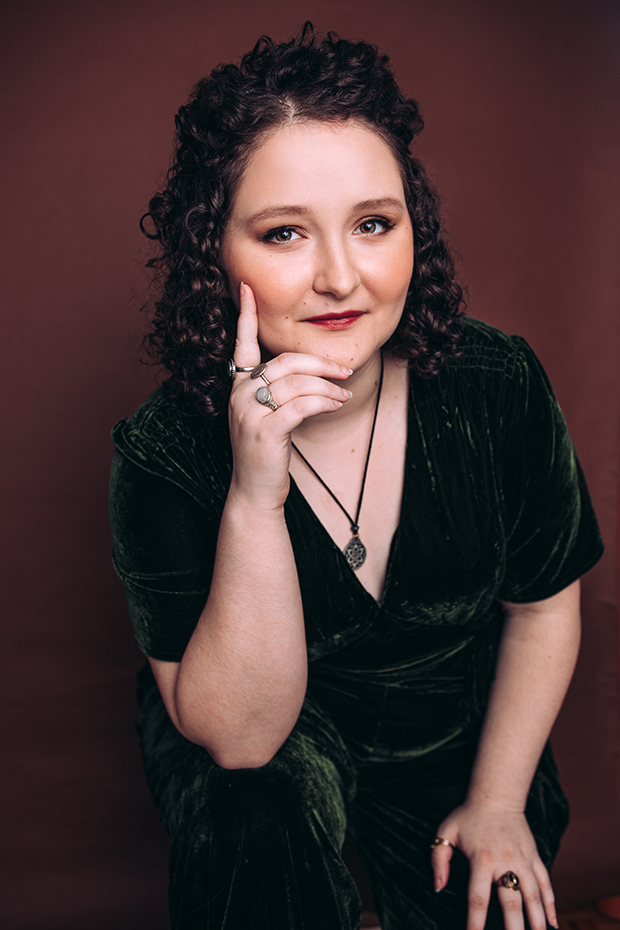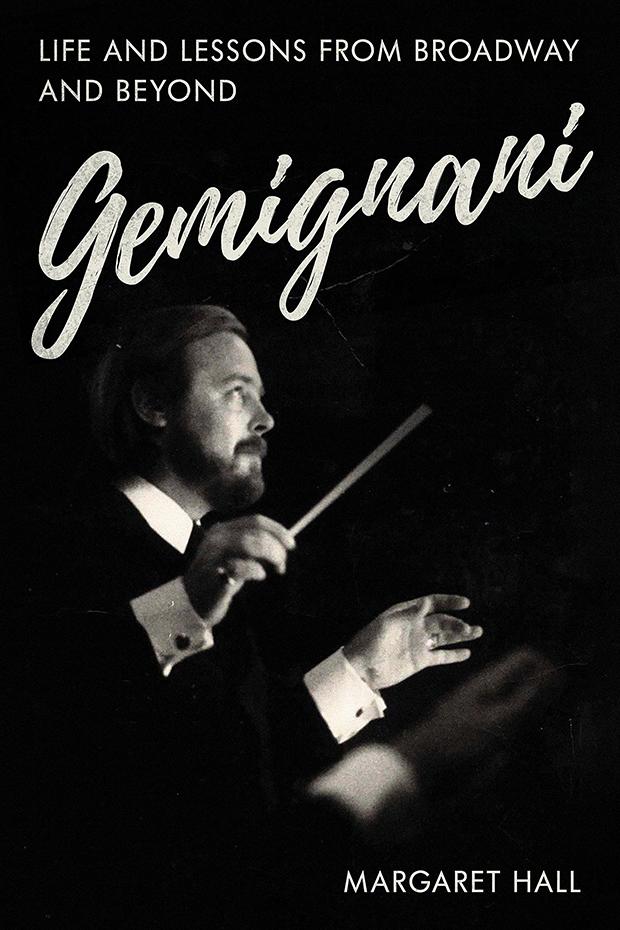Interview: Historian Margaret Hall Discusses Her New Book About Paul Gemignani
Hall talks about the whirlwind two years she spent writing about the life of the legendary musical director.
Paul Gemignani. For almost 50 years, the well-known musical director has occupied the orchestra pits of hundreds of productions worldwide. As a close collaborator of Stephen Sondheim and Hal Prince, Gemignani was present for some of the biggest, most groundbreaking shows in Broadway history. And though we know a lot about his collaborators, Gemignani's story had never been properly told until now.
Over the last couple of years, musical theater teacher and historian Margaret Hall has worked closely with Paul Gemignani to bring a thoughtful account of his life and career to readers. Hall has established herself as a musical theater authority by offering musical theater intensive classes, and she has contributed to several publications including TheaterMania.
Hall talked to us about the experience of writing her first book and the lessons that she hopes readers will take away from it.

(image provided by Margaret Hall)
This conversation has been condensed and edited for clarity.
Tell me how this project first come to be.
Everything began, for me at least, on May 5, 2020. I received a phone call from a woman named Jennifer Ashley Tepper. She told me that she wanted permission to give my contact information to Lonny Price, who would then give it to Paul Gemignani. I told her that they could contact me but wasn't sure what this was about. She explained to me that Lonny had been haranguing Paul about writing his memoir since the '90s, and Paul had been putting it off. But then came the beginning of the pandemic, and Lonny said to Paul, "You officially have nothing but time."
When Jen told me this, I thought that she wanted me to talk to Paul about why I, a 22-year-old who was about to graduate with a BFA, would want to know his story. I thought I was being approached as a potential reader. So, Paul sent me an email, and basically asked me why I thought this book should exist. Aside from one recent book that came out, there has not been a significant biography or autobiography of a music director since 1971. A lot has changed for music directors and the American musical in the last 50 years. I explained this to him, and he responded with "Great, I'll call you on Monday and we'll get started." At first, I didn't really know what this meant, but after an hour or so of dissecting emails, I realized that he wanted me to write it!
What was your typical daily process for collecting and compiling information?
We talked every day for about six months. I'd wake up, eat breakfast, and then edit what I had written the night before. Around 2:30, I'd have a phone call with Paul which lasted about two hours. We went through things chronologically, although we'd pop around because we both tend to go on tangents. Once the phone call with Paul was done, I would go through my notes and transcribe things. And then I would pretty much lock myself in the attic and write from 6pm to about 2am. And then sleep, repeat. It was such a fulfilling period of my life because I felt like every atom in my body was working toward a goal.
You interviewed lots of people for this book, including many Broadway legends. Can you talk about that experience?
When I began work on the book, Paul said, "Here's the contact information for everyone I've ever worked with. Go for it." It was truly throwing me in the deep end of the pool. But at the same time, he was sort of my life preserver. The experience was mindboggling and baffling. As for how I did it, I just cold-called people and cold-emailed. I would say, "I'm calling on behalf of Paul Gemignani. Can I talk to you about X, Y, Z thing?" And people were pretty receptive. It really warms my heart because that tells you so much about their relationship with Paul. If they got Paul's approval, then I also had theirs. They trusted me and that meant so much because they knew nothing about me. They were very supportive, and a lot of them actually taught me how to interview through my interviewing them.

In addition to telling Paul's story, what were your other goals with the book?
I wrote this book with one very specific reader in the back of my mind at all times: a little 12-year-old girl in Wisconsin who knows that she loves her band class, but she doesn't think she wants to be in a symphony when she grows up. She loves music, but she doesn't know where there's a place for her. And I want this to be the book the librarian can pick up and say, "Read this."
If there is one thing you would like readers to take away about Paul, what would that be?
Your heart knows the way to go. You can logic something out as much as you want, but your gut is going to tell you the truth. That is what guided Paul throughout his entire career. And part of what I think makes him so special is that he refused to ever put money or status ahead of his own heart and his own loyalty to those he loved and the art form he loved.
What future projects are you working on?
I currently have four things in the pipeline. I can't really give you specifics on three of them.
But I can tell you that one of them is a book on Stephen Sondheim's Assassins. I am very lucky that I am being given the bandwidth to talk a lot about a show that I care about so much.








